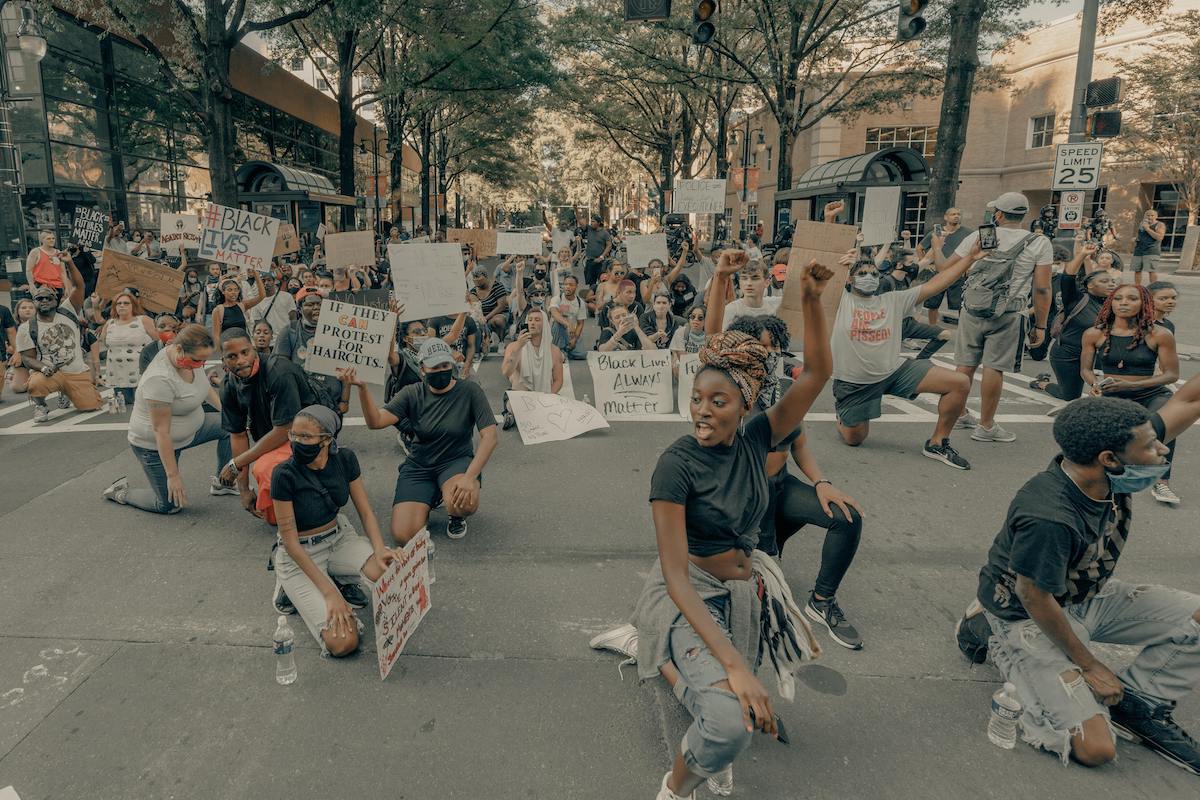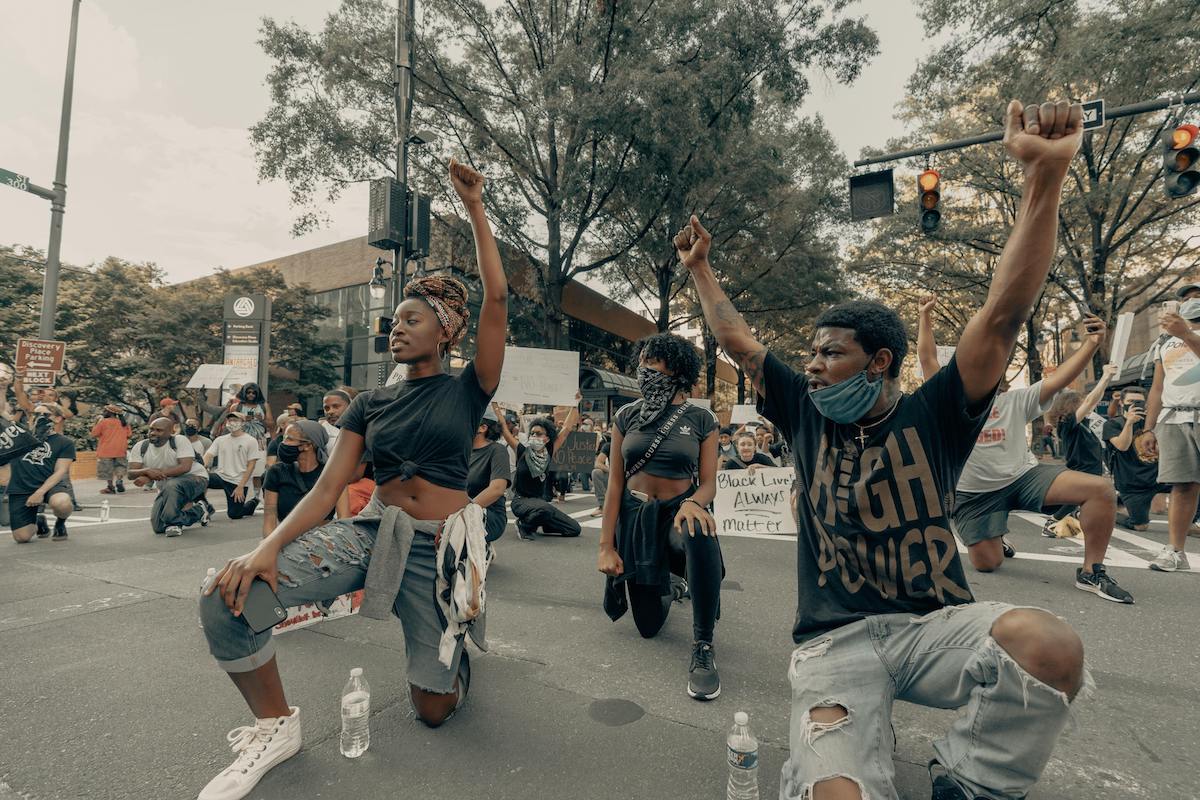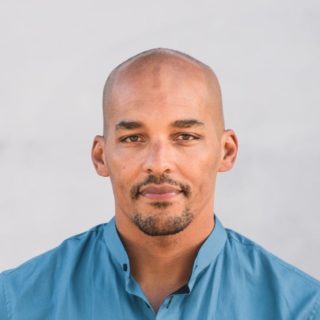‘Your Camera Phone Is Our Weapon’: Light Watkins on Why We Need to Talk About Racism

Light Watkins is a meditation teacher, international speaker, author of the book Bliss More and creator of The Shine programme. His Instagram is a daily source of inspiration, featuring videos of Light discussing everything from meditation to self development.
Late last week, Light posted a video titled, ‘For white people who are asking what can you do?’ where he speaks passionately and eloquently about the Black Lives Matter situation. The video has now been viewed over three million times.
A friend of Form, the following account has been adapted from that video, alongside some extra original words Light has kindly provided us.
I was 7 years old the first time I was racially profiled. A police car pulled up next to me and my brother as we were walking down the street and told us that we resembled some suspected burglars. They wanted to know where we were going and what we were doing.
It happened again when I was in the mall with some friends. One of the store owners called the mall police because he thought we potentially had stolen something from his store. They brought us to the back of the store and searched us. Of course, we hadn’t stolen anything.
The first time I got called ‘nigger’ to my face by a stranger was as a teenager in Washington D.C. while I was with some college buddies of mine. The most recent incident was two years ago. I was going to do an interview for the book that I had just written and somebody had called the police saying that I looked like I was going to break into somebody’s car.
I’m not unique in any of these experiences. What I’m describing to you is something that black people from all walks of life have to put up with on a regular basis.
Use your camera phone as a weapon for good.
On top of eating our breakfast, paying bills, engaging in relationships, raising kids, being a productive citizen of the world, we have to try and not make suspicious white people feel so uncomfortable that they call the police on you. If the wrong officer had been called out on me, in any of those incidents, it could have resulted in excessive use of force and I may not be here today.
The best thing to happen to racism was the camera phone. While much is made about America’s relationship with guns, I think every person of colour needs to now arm themselves with a camera. If you’re witnessing someone being brutalised and you capture it on camera, then it will help expose that moment of racism. These documents can go on to lead to the change we seek. It gives accountability to people who are out there, who are either acting up or doing the right thing. Use your camera phone as a weapon for good. And this should stand for everyone too.
Pretend like George Floyd was your brother or your friend, and do whatever you would do if that person was related to you. At the very least speak out about it and let your followers know that it’s not ok. Trust me. We all know it’s uncomfortable. I don’t want to be having to saying this.
But unlike the #MeToo movement – which largely happens behind closed doors – racial profiling, brutality, and modern-day lynchings are happening in broad daylight. And most of you aren’t posting anything. It’s almost like you’re pretending it doesn’t exist and that is why a lot of black people don’t trust you. The fact that you can see something like that and not do anything makes you untrustworthy. Which means the racism isn’t going to go away anytime soon.
I believe we’re all in this together, but I need you to believe it too.
As much as we claim we are all one, it is just an empty sentiment until the people who are related to the abusers and oppressors step up and begin to let their voices be heard. I believe we’re all in this together, but I need you to believe it too.
Start by having more conversations. Have conversations with your white friends, but more importantly have conversations with other black people. You don’t have to adopt some sort of saviour role and have the perfect thing to say.
Racism is like a man dealing with a woman when she’s pregnant. You’ll never know what it’s like to be pregnant. When you’re pregnant, people don’t say, “hey would you like my seat?” they just give up their seat because they know it’s uncomfortable to stand up for a length of time.

From a racism lens, if you see any way in which you can help someone, not because you feel sorry for them but because you know that person might not have enjoyed the same level of comfort as you’ve enjoyed, that’s another opportunity to reach out and help someone. If you are in a position of power in the workplace it could be seeking a more diverse pool of candidates. Go to your human resources and say I don’t see any diversity in these candidates, can you bring me a group of people that are more representative of what society actually looks like.
Give people of colour the benefit of the doubt that they’re doing the best they can given the circumstances. And if it looks like they’re not doing well its probably more to do with the circumstances than to do with them personally or their work ethic.
Ask questions about how we can level the playing field a bit more and how can we improve their circumstances. Enquire about the systems in place that are influencing those circumstances.
Most of the racism that happens isn’t even blatant. It’s subtle. It’s systemic. It’s baked into the education and healthcare system.
If you’re willing to read this you’re unlikely to find yourself in a room with people who openly condone racism or racist acts. But, most of the racism that happens isn’t even blatant. It’s subtle. It’s systemic. It’s baked into the education and healthcare system. It’s baked into our language and our communities. It’s the way we organize as a society. We just have to acknowledge that a) there is a serious problem. b) If you’re white that means that on some level you’ve got advantages that you’re probably not even aware of, and c) you have to be open to talking about the white privilege problem with other white people.
Finally, I’d recommend you take these moments of reflection to educate yourself. The author DeRay Mckesson and his memoir On the Other Side of Freedom: The Case for Hope is a good start. He also has a podcast, Pod Save the People, which talks a lot about racial issues and injustice. And also the Netflix documentary, 13th, which contends that slavery has been perpetuated since the end of the American Civil War through the criminalisation of African Americans in the U.S. prison boom.
We all have to make it okay to talk about these things. We can’t just ignore it and hope it goes away.
Show your support by donating to the following funds and charities:
American Civil Liberties Union
Image credit: Clay Banks via Unsplash.


















